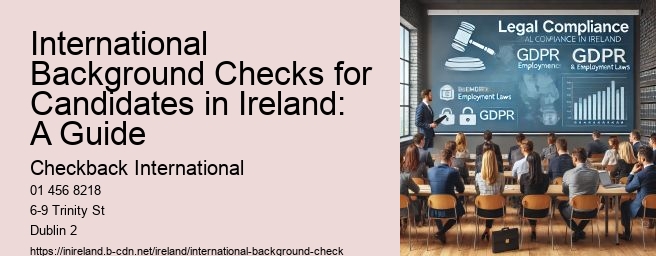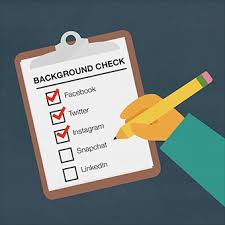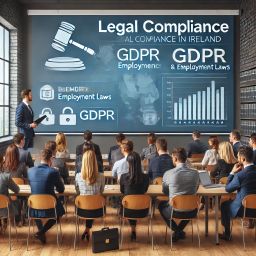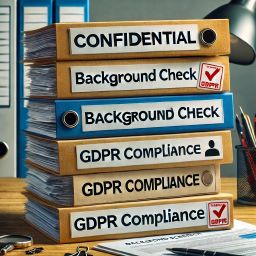

Fast processing helps organizations make timely hiring decisions while maintaining thorough screening standards.
Companies performing background checks implement robust data protection systems and maintain clear policies on handling candidate information during the screening process.
Turnaround Times and Speed of Service
PSA-approved vetting service providers conduct the process while following data protection regulations.
Candidate vetting requests full legal name, date of birth, address history, and identification numbers like social security or national identification numbers.
3.Background check providers must have documented procedures for data deletion, subject access requests, and breach notifications.
This timing helps organizations make quick hiring decisions while maintaining accuracy. The process follows Irish and European Data Protection legislation, protecting candidate privacy while meeting compliance requirements.
Contacting the Right Background Check Provider in Ireland
PSA background checks generally apply to individuals who meet minimum working age requirements according to their local employment laws. Most employers conduct these checks on job candidates who are old enough to work legally in their jurisdiction.

Any gaps in employment must be accounted for through statutory declarations, particularly for periods of self-employment or unemployment.
Extra fees apply for more detailed checks or faster processing. Prices differ for services outside Ireland and the UK.
Frequently Asked Questions
Conflict of Interest Screening

2.Management of multi-level security clearances and approval processes
Organizations should have clear policies about re-vetting schedules and track expiration dates to meet current standards and regulations.
4.Proof of address
Criminal Records CheckPre Employment Vetting in Ireland
The service includes checks from multiple authorities, including Garda, DBS, and Department of Justice, with completion times of 5-10 working days.
Digital platforms and databases help collect, check, and manage candidate information during security checks. These tools make background investigations faster and more accurate when evaluating people for security-sensitive jobs like alarm system installation and manned guarding.

A technology firm made its screening faster, cutting hiring times by 40%, while a logistics company saw employee performance ratings improve by 20%, showing how proper vetting matches team skills with job requirements.
Organizations can conduct background checks on remote workers located outside Ireland while following data protection and employment regulations of both Ireland and the worker's home country.
PSA 74:2019 Vetting Standards set a benchmark in Ireland's employment landscape, specifically for electronic security and access control sectors. These standards establish requirements for employment screening and require thorough knowledge and application.
Background Checks for Temporary and Contract Workers in Ireland

A background check in Ireland involves reviewing a person's criminal, financial, or personal records to assess their suitability for a role or position.
The duration can vary but typically takes between 1-2 weeks, depending on the type and complexity of the check.
Garda vetting is a specific type of background check required in Ireland for individuals working with children or vulnerable adults, involving checks against police records.
Yes, you must obtain consent from the individual before conducting any background checks in Ireland.
Not for all employees, but certain sectors such as healthcare and education may require comprehensive checks.
It includes checking for any criminal convictions or offences recorded against the individual.
Yes, individuals can request their own background checks in Ireland for personal review or to prepare for employment screenings.
Skipping background checks can lead to hiring unsuitable candidates, which may result in legal and reputational risks.
Yes, police clearance is a general criminal record check, while Garda vetting is specific to roles involving vulnerable groups and includes more detailed investigations.
You can request transcripts or degrees directly from educational institutions or use third-party services that specialize in educational verifications.
Information about spent convictions, certain types of personal data, and other protected characteristics under GDPR is off-limits unless specifically relevant and lawful to access.
International checks may involve additional complexities such as different laws, languages, and longer processing times.
No, background checks do not affect your credit score as they do not involve a credit inquiry that would impact the score.
Best practices include securing data in compliance with GDPR, limiting access to authorized personnel, and ensuring data is stored for only as long as necessary.
It depends on the industry and role, but typically every 2-3 years or when significant changes occur in the individual’s role or responsibility.
While not specific by law, many IT positions require checks due to access to sensitive or proprietary information.
GDPR regulates the processing of personal data, ensuring that background checks are conducted in a lawful, fair, and transparent manner.
Yes, but it must be done lawfully and with the individual’s consent, considering the relevance to the role.
Penalties can include fines, legal actions, and reputational damage, depending on the severity of the non-compliance.
Remote work has increased the importance of thorough background checks, especially for those in positions of trust or handling sensitive data.
Best practices include conducting similar checks as for permanent staff, especially if they have access to sensitive or critical areas.
Ensuring fairness involves following consistent procedures, obtaining consent, and allowing candidates to dispute inaccuracies.
Yes, it’s recommended to tailor background checks based on the specific risks and requirements of each position.
Signs include transparency about services, compliance with legal standards, positive reviews, and strong data protection practices.
Handling involves assessing the relevance to the job, discussing findings with the candidate, and considering legal and ethical implications.